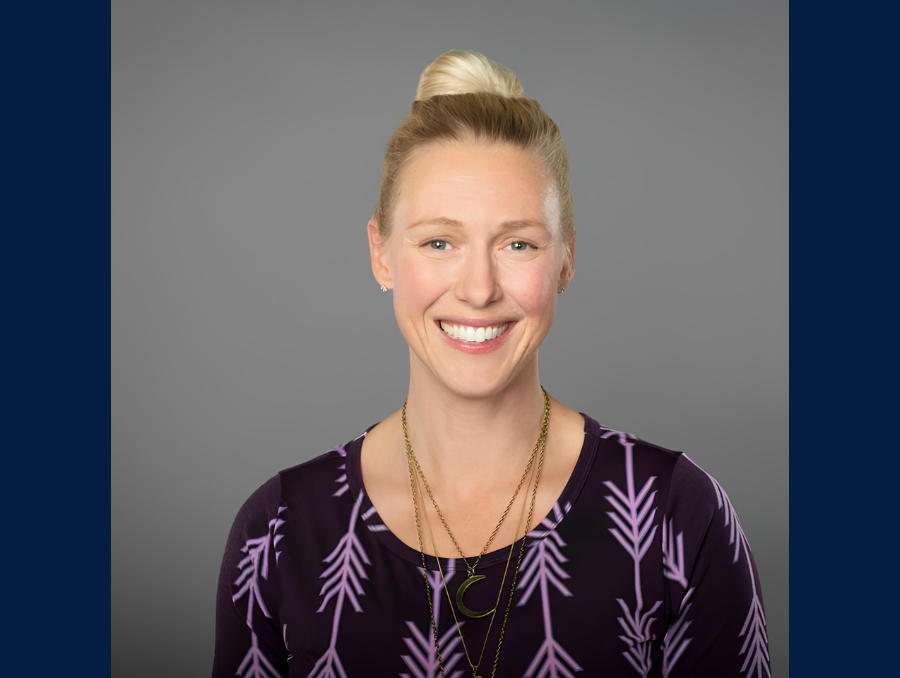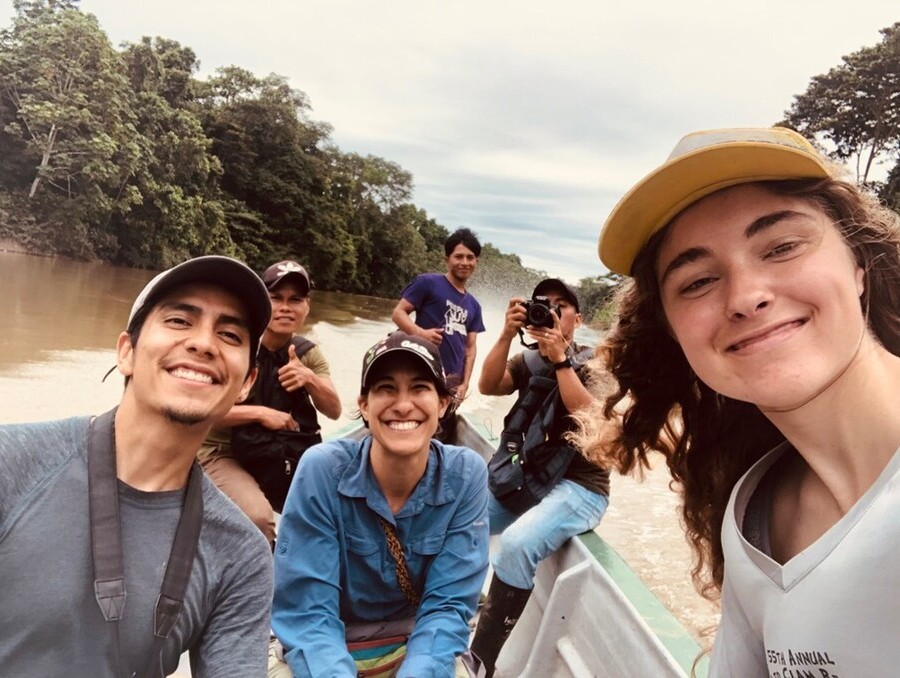Never one to shy away from technology, Lyndsay Munro embraced the rise of generative artificial intelligence with the same enthusiasm she brings to her lecture halls. She soon turned the fast-evolving technology into a teaching partner, creating custom tools that guide students toward discovery and keep them engaged with challenging coursework.
Munro, who has taught a wide range of classes in the University’s Department of Chemistry, is now bringing that innovative style to the College of Agriculture, Biotechnology & Natural Resources’ Department of Biochemistry, Molecular Biology & Biotechnology where she joins the faculty as a teaching professor.
“We are excited to welcome Lyndsay to our team,” said Justin Legleiter, chair of the Department of Biochemistry, Molecular Biology & Biotechnology. “Her enthusiasm and innovative approach to engaging students in STEM will be a tremendous asset to our students as they prepare for careers in biochemistry.”
Reimagining biochemistry: Personalized learning, powered by AI
Munro’s approach to teaching has been shaped by one persistent question, “Where are the students, and how do I meet them there?”
Often teaching classes of more than 300 students, she wanted a way to reach and engage them all. That led her to create a custom AI-powered chat tool, built from her lecture notes. She programmed the chat never to give direct answers but instead to guide students through problem-solving. By the end of the semester, her class had generated more than 3,000 conversations with the tool, a level of interaction Munro found gratifying.
“They loved having an anonymous, always-available tutor,” she said.
She later applied her AI skills to transform lecture notes into a podcast-style dialogue, allowing students to review content on the go. Using NotebookLM, students could hear two voices discussing science concepts as if it were a radio show. The newest version even lets them “join” the conversation and ask questions.
“With large lectures, students often need additional ways to engage and stay excited about their classes,” Munro said. “AI gives them personalized options that cater to their different learning styles.”
That philosophy will soon extend into her new role. One of the first courses Munro will teach is a rigorous four-credit biochemistry class with about 100 students, and she said she is eager to use AI tools to help them succeed.
“AI has its challenges, but focusing only on the negatives means missing opportunities to deepen learning. It challenges educators to rethink how to engage students so they can learn differently and more deeply.”
Career path: from industry to innovation in education
Munro’s path to higher education began with a bachelor’s degree in chemistry, with a background in biochemistry, from the University of West Florida. She worked in industry at Cooper Standard, a rubber extrusion company, as a customer liaison chemist troubleshooting products used in automobiles.
“It was interesting, but I realized I wanted more direct engagement with science, which motivated me to pursue graduate school,” she said.
Encouraged by her undergraduate advisor to pursue doctoral studies at the University of Nevada, Reno, and drawn by the outdoor lifestyle and natural beauty of the Reno area, Munro applied to the College of Science’s chemistry program. She studied under Professor Vince Catalano, now senior vice provost for university projects and strategic initiatives.
While completing her Ph.D., Munro’s work as a teaching assistant opened her eyes to education as a career, an experience that continues to shape her work today.
In addition to her teaching, Munro serves as faculty liaison for academic standards through the Provost’s Office. She is also involved in AI initiatives, from teaching a course at the University’s Lake Tahoe Campus to working with Nevada Online and the Provost’s Office on the development of an AI certificate program.
















